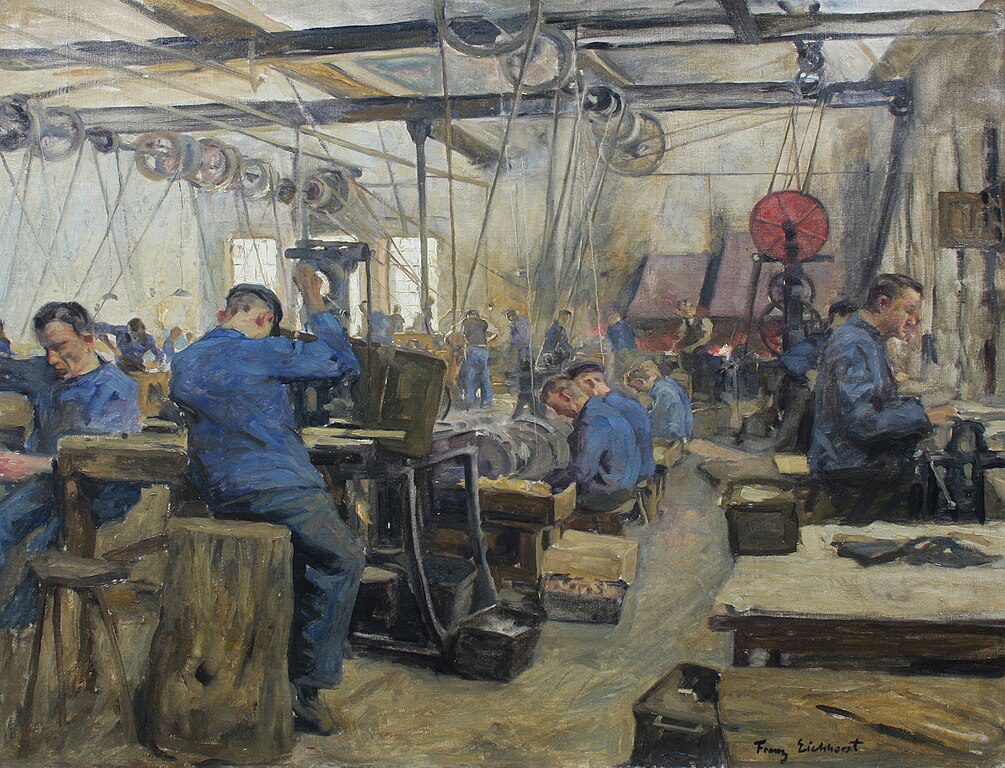Colombia is the most conservative, right-wing country in South America, if not Latin America as a whole. It had never had a full-on left wing or progressive government until the last election, and having two right-wing candidates move to ballotage is not a rare sight. Even the couple governments that could perhaps be described as left-wing (Samper and Santos) were not—whatever criticisms I have of them. Unlike most South American nations, overtly communist and socialist parties have never enjoyed much popularity, even among the working class.
For leftist Gustavo Petro to win the last election, then, something must have changed, and not just in the last few years. This is a generational fight and its effects, though seemingly unexpected, should be read as part of a change of course that started decades ago. This is, of course, not a novel idea; many have discussed how progressives worked to change this nation. However, what I propose to do is different: I am going to consider what otherwise good and fair-minded people have failed to do to prevent progressivism’s recent victory.
Many are certainly responsible for the current ideological change Colombia is experiencing. The traditional political class and academia have been widely analyzed in their inaction and obtuseness, so spending time on them is redundant. There’s one significant group, though, that has experienced a tremendous ideological and philosophical shift which, I believe, has impacted, and continues to impact, how most of the country sees our social networks, the economy, and class.
Traditional enterprise
The group I’m talking about is the Colombian (and, particularly, the paisa) business elite. Our nation has had a strong entrepreneurial class for over a century. Most of our biggest companies have long histories, and so have employed Colombian people and been part of Colombia’s life for quite some time. We’re familiar with their logos and colors, their involvement in the social fabric of the nation, and some have even had significant roles in our local literature.
I come from a city and region, Medellín, where some of the largest companies in the nation were born and are headquartered. Colombia’s biggest bank, biggest insurance company, biggest cement company, biggest supermarket, and biggest food producer are all paisa—that is, from Medellín, not from Bogotá, the capital city. Other incredibly big companies that are now extinct, mostly in the textile sector, were also founded here. And all of these were cherished and taken care of by the local population. We still talk about “our companies,” though most have no participation in them. Historically, they have been our pride.
There is a reason for this. The founders of these corporations had a clear philosophy of business that motivated their work. Call it Christian (as I believe it was) or not, but there was a strong, sincere, visible concern for the well being and progress of their employees, their city, and their region. Many CEOs alternated their day job with government positions as mayors, governors, and congressmen at a time when these political positions paid little to no money. There are still full neighborhoods in Medellín that were built by companies decades ago. Salaries were high, and benefits were offered voluntarily by the corporations, particularly for those with the humblest positions.
This was not done because of tax reductions, good press, publicity, or as a way to pacify some kind of inevitable revolution from the working class. It was done for a much less practical, much less utilitarian reason. Some might even call it reactionary or traditional: it was done because it was right. Colombia’s business class believed, up to a certain extent, at least, that workers had dignity, that not every company deed or benefit should be cost efficient and paid for, and that, while being profitable was indeed a constant concern and priority, it was not the sole mission of a corporation.
Profit over people
How far has this changed? I remember reading a couple of years ago how Alejandro Salazar, local entrepreneurial guru (and whose book La estrategia emergente remains a must-read amongst paisa and Colombian companies), prided himself in publicly telling an important business woman that companies were not some sort of charity when she voiced that they should actively seek to benefit others, and not just stock-holders, at a business congress. In sum, he said, companies exist to make money, and nothing else.
This is one of the most widely celebrated consultants in the nation. He certainly leads, and is widely read and accepted by the majority of our business class, not only in the highest positions, but also in lower levels, where the next generation of CEOs and board members is being trained,
This is just a symptom of what I’m trying to illustrate. Charity has been replaced by philanthropy; the poor and needy are more and more seen as a problem that needs to be fixed; benefits only given inasmuch they attract and retain talent; charitable donations given only if good press, publicity, and goodwill are guaranteed; and ROI is the criteria that defines whether something is desirable or not, good or bad. Concern for the city and nation has transformed into concern to retain influence and power in the political sphere, and support to social and public initiatives is only given when influence is gained, when benefit—visible, quantifiable benefit—is at hand.
All these problems are aggravated by what I like to call the ‘applause committee syndrome.’ Because of how companies and stock are organized, most of the paisa economic net is fused together, and most work or benefit is under the shadow of one of the local big conglomerates. This makes criticism (even criticism like mine, that defends private companies, believing they are indispensable for economic well being and the core of our identity) almost never spoken, and certainly, never heard.
The consequences of this are inevitable, as much as the economic class and local boards refuse to see them: the people know when supposed charity is done as a means for something else and when it is done out of the goodness of the heart. They have felt for a while now that companies utilize their situation for their own good press, and avoid doing more than what’s needed for that good will. People have seen how corporate charitable donations have switched, progressively, to more fashionable, press-friendly areas, like planting trees or recycling, which are good for the planet, but avoid starting initiatives that are good for the person before them who is suffering. The people have seen how companies care, and so very much, about their influence in the city, how no dime is spared to promote a certain idea of who they are, but how they consistently fail to incarnate their noble ideals. It seems to me that the current economic elite has decided merely to accept whatever is en vogue among first-world corporations and adopt it as their own moral standard. Of course, utilitarianism remains a strong criterion, as does anything that allows for strong tax benefits, as most environmental laws do.
This lack of genuine motivation has left the public feeling alienated from the companies that used to be active in the well being of the community. The foreign nature of this new set of priorities in the corporate moral compass is already failing to transmit the true value of companies. Many are beginning to consider them a necessary evil. One only need see the results of the last local and national elections: Medellin’s current mayor campaigned on the feeling of disenchantment with the private sector. President Petro also successfully used this strategy. This characterization of the private enterprise will continue if no genuine, disinterested goodness comes from it.
Stronger communities, meaningful careers
I believe private companies are good for the economy, that the free market is almost always the best model to improve people’s lives and, rest assured, I’m in opposition to the current government. I write this because I care about Colombian companies, about our nation, and about our society. It hurts me that as a community, we have lost the ability to openly care about others without ulterior motives. Companies are not magic entities: they are as the people who lead and work there are. We reap what we sow, and I fear a similar reality explains the strong anti-free market movements not only in Colombia, but in the whole continent.
Companies (and, most importantly, their leaders) can make the seemingly irrational decision to care about things that are not in their own narrowly-defined ‘interests.’ They can understand, as some refuse to consider, that making money is not the sole raison d’etre of their existence, either as people and as corporations. The result will be, without a doubt, stronger communities, meaningful careers, and real charity. The feeling of being a community will be regained. As with most human problems, what’s ultimately needed is the change of hearts. We Christians call it conversion: to turn around, outward, to transform oneself. I pledge to start with myself. Will we, as a community, be up to the challenge?
Credit:Source link



